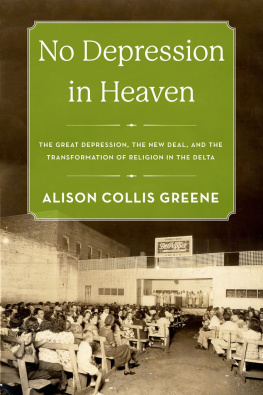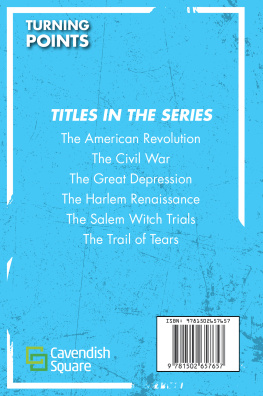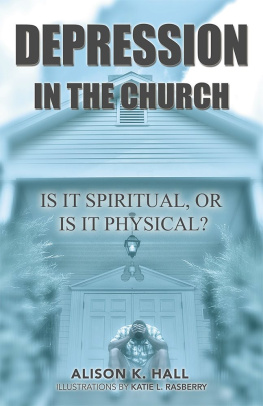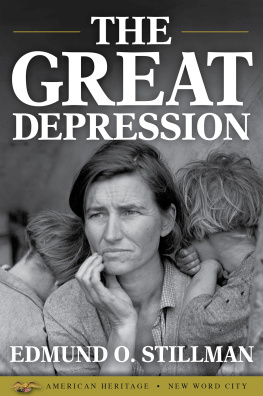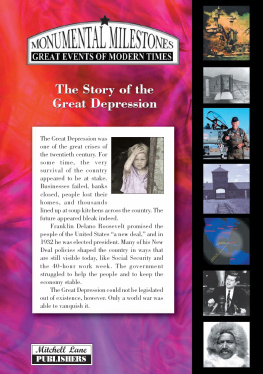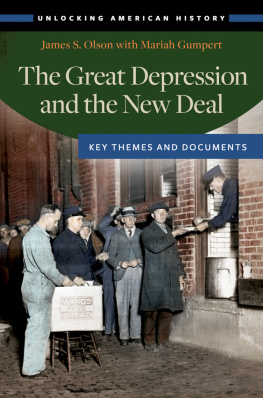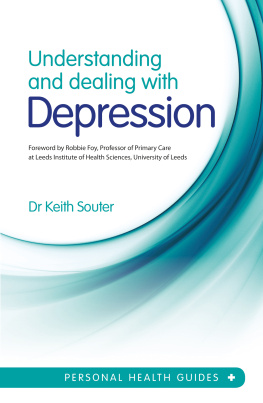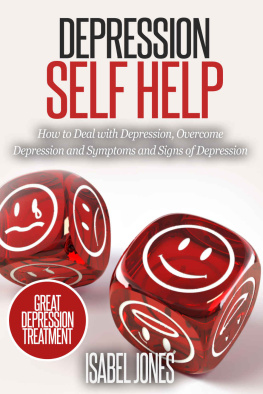No Depression in Heaven

Oxford University Press is a department of the University of Oxford. It furthers the Universitys objective of excellence in research, scholarship, and education by publishing worldwide.
OxfordNew York
AucklandCape TownDar es SalaamHong KongKarachi
Kuala LumpurMadridMelbourneMexico CityNairobi
New DelhiShanghaiTaipeiToronto
With offices in
ArgentinaAustriaBrazilChileCzech RepublicFranceGreece
GuatemalaHungaryItalyJapanPolandPortugalSingapore
South KoreaSwitzerlandThailandTurkeyUkraineVietnam
Oxford is a registered trade mark of Oxford University Press in the UK and certain other countries.
Published in the United States of America by
Oxford University Press
198 Madison Avenue, New York, NY 10016
Oxford University Press 2016
All rights reserved. No part of this publication may be reproduced, stored in a retrieval system, or transmitted, in any form or by any means, without the prior permission in writing of Oxford University Press, or as expressly permitted by law, by license, or under terms agreed with the appropriate reproduction rights organization. Inquiries concerning reproduction outside the scope of the above should be sent to the Rights Department, Oxford University Press, at the address above.
You must not circulate this work in any other form and you must impose this same condition on any acquirer.
Library of Congress Cataloging-in-Publication Data
Greene, Alison Collis.
No Depression in Heaven : the Great Depression, the New Deal, and the transformation of religion in the Delta / Alison Collis Greene.
pages cm
Includes bibliographical references and index.
ISBN 9780199371877 (hardcover : alkaline paper)eISBN 9780199371891
1.Arkansas Delta (Ark.)Religion20th century.2.Memphis (Tenn.)Religion20th century.3.Arkansas Delta (Ark.)Race relationsHistory20th century.4.Memphis (Tenn.)Race relationsHistory20th century.5.Depressions1929ArkansasArkansas Delta.6.Depressions1929TennesseeMemphis.7.New Deal, 19331939ArkansasArkansas Delta.8.New Deal, 19331939TennesseeMemphis.9.Social changeArkansasArkansas DeltaHistory.10.Social changeTennesseeMemphisHistory.I.Title.
BL2527.A63G73 2015
277.678082dc23
2015018302
For my parents,
Larry Joe Greene
and
Margaret Collis Greene
Contents
MY DAD WAS once a Southern Baptist preacher who thought too much, read too much, and talked about hell too little. Then suddenly he wasnt a preacher anymore. He drove a school bus and pruned Christmas trees and delivered heating fuel on icy mountain roads for the rest of my childhood, and he did it all with an uncomplaining kindness that I wish Id inherited. Meanwhile, my mother proved that no one in the world is more important than a good public school teacher. She was an even better parent, who never once made me quit reading that book or come down out of that tree. This book is for them, and thats why.
Im thankful for many extraordinary mentors. Ruel Tyson was the reason I landed at the University of North Carolina, a timid and insecure kid he refused to believe was either of those things. Ruel might be the only scholar of religion Ive met who can believe a thing into being. There is no livelier mind, no more committed teacher, no more gracious friend.
Glenda Gilmore has read more drafts of this workfirst as a dissertation and again as a book manuscriptthan anyone else. She is the best sort of mentor: honest, generous, thoughtful, and eloquent in person and on the page. I have learned always to trust her advice. Jon Butler is one of the kindest, fairest, and toughest scholars anywhere. Because he did not tell me my work was good when it was not, I trusted his praise when it came. Skip Stout told me when I first arrived at Yale that it was a lot easier to teach history than writing, which I think was his gracious way of telling me that I had an especially long road to learn the former. But with good humor and a great deal of kindness, he taught me both. Beverly Gage was a new professor when I was a new graduate student. I watched her navigate the start of a spectacular career, and though her grace and wit are inimitable, she has nonetheless provided a wonderful model for many new scholars.
I am grateful for the warm atmosphere in the Department of History at Mississippi State University. My colleagues have been almost universally welcoming and encouraging from the moment I set foot on campus, and have also become good friends. My department head, Alan Marcus, has been supportive all along and creative in helping me carve out time and resources to write.
Many, many friends and colleagues have helped me along the way. I have had the remarkable good fortune to work on parts of this book as part of three different writing-and-eating-and-drinking groups, all of them wonderful: Julia Irwin, Grace Leslie-Waksman, and Eden Knudsen McLean; Sarah Brauner-Otto, Shalyn Claggett, Devon Brenner, Alix Hui, Anne Marshall, and Amanda Clay Powers; and Heather Curtis, Jonathan Ebel, Jennifer Graber, Kip Kosek, and Tracy Fessenden. Jon Ebel read this book first as a dissertation and then as a much-revised book manuscript, and he has become a good friend, endlessly generous and always encouraging. I am grateful to Jon for the conversations that have helped shape this book, and I eagerly await his forthcoming book on religion and the Great Depression in California. Ed Blum and Matt Sutton read a full draft of this book when it was a dissertation and when they certainly did not have the time, and their thoughtful feedback helped me restructure the narrative. I am grateful to several more people who have read or heard portions of the book in its various forms and provided opportunities for me to share it: Wallace Best, Jessica Delgado, Darren Dochuk, Elizabeth Fones-Wolf, Ken Fones-Wolf, John Giggie, Paul Harvey, Kevin Kruse, Ted Ownby, Bruce Schulman, Stephen Tuck, Judith Weisenfeld, and Julian Zelizer. Finally, I thank the two anonymous readers at Oxford University Press for their incisive commentary and critiques.
The 20132015 Young Scholars in American Religion mentors Robert Orsi and Courtney Bender, and my colleagues Shelby Balik, Rosemary Corbett, Omri Elisha, Kathleen Holscher, Hillary Kaell, David King, Anthony Petro, John Seitz, and Josef Sorett, have made this whole enterprise simultaneously more fun and more awe-inspiring. Hillary read two chapters as I worked to revise and made some wonderful suggestions. Bob and Courtney have gone above and beyond their responsibilities to us in many ways, but Im especially grateful that they both took time to read a penultimate version of the manuscript. Bobs wonderfully thoughtful response helped me see the big picture and figure out how to end, all while reassuring me at a low moment.
Im also grateful for other wonderful colleagues in Mississippi and across the country, especially Kathryn Barbier, Caitlin Casey, Kat Mellen Charron, Rob Ferguson, Jim Giesen, Julia Guarneri, David Huyssen, Mark Hersey, Adriane Lentz-Smith, Kathryn Gin Lum, Anne Marshall, Jessica Martucci, Robin Morris, Julia Osman, Brendan Pietsch, Steve Prince, Brenda Santos, Dana Schaffer, Sam Schaffer, Kirsten Weld, and Molly Worthen. Several other good friends either put me up or put up with me as I researched and wrote: Devon Myers, Charity Taylor Grindstaff, Laura Willard Tucker, and Jane Buchanan Williams. To my friend Sarah Hammond, whose bright light drew me to Yale in the first placeI miss you so.

